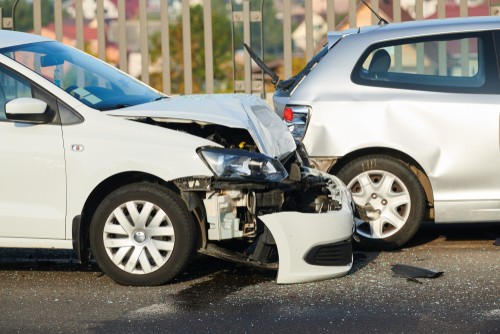If you’ve ever been involved in a motor vehicle accident, you know it isn’t easy to figure out who is at fault. Of course, both drivers insist that they were the innocent party. Usually, the only way to tell who caused the crash is to look at the police report. The problem is that the police don’t often witness the accident. They come after the fact when you call 911.
Your Atlanta car accident lawyer is going to rely on the police report to help prove fault. But, again, the police can only offer their opinion. They’ll do a thorough investigation of the crash scene. They’ll look at the road conditions and weather. They’ll look to see if there are any signs of skid marks or tire tracks. They’ll also look at the damage caused to the cars.
The police are also going to ask witnesses if they saw what happened. There are usually at least one or two witnesses to a car accident. Your car accident lawyer in Atlanta is also going to look at these witness statements. If someone indicates that the other driver was speeding, the police may lean in your favor. They may even issue the other driver a speeding ticket. The question is, will this automatically convince the insurance company that you were not at fault?
It Depends on What Sort of Ticket the Cops Issue
Just because the cops issue the other driver a traffic ticket doesn’t automatically mean you’re entitled to damages. It really depends on what sort of ticket they’re issued. For example, if they get a ticket for having an expired registration, it’s not likely going to help your Atlanta car accident attorney prove fault. However, if they get a ticket for speeding or DUI, that’s another story.
If the police issue the defendant any sort of ticket for a driving infraction, it should help your case. Let’s say the police observe the other driver speeding immediately before your crash. If they give them a speeding ticket, it helps show that they were negligent. The same is true if they’re cited for tailgating or failure to maintain lane.
Can Your Atlanta Car Accident Attorney Introduce the Ticket into Evidence?
If the other driver is issued a driving ticket, your attorney will try to introduce it into evidence. There’s a good chance they’ll be able to do that. Keep in mind, however, your case is likely going to be settled long before trial. It won’t really be a matter of getting the ticket into evidence. It will just be a matter of convincing the insurance adjustor that you weren’t at fault.
Once the insurance company sees that the other driver was issued a speeding ticket, they should pay your claim. They know that this information will probably be admitted into evidence. This means you’ll have a way of showing a judge or jury that the defendant was negligent. Rather than having to fight it out in court, they may be more willing to settle. They don’t want to have to pay for lengthy trial if they know they’re going to lose.
Your Atlanta car accident lawyer is going to fight hard to settle your case. They don’t want to go to trial. They have experience negotiating with insurance companies. They know what it takes to get you the compensation you deserve. And, having proof that the other driver was speeding will only help their chances of doing this.
Call and Talk to an Experienced Car Accident Lawyer in Atlanta, Georgia
If you’re injured in a car accident, you should call and talk to a skilled car accident lawyer in Atlanta right away. They can review all of the information you have and try to establish fault. They’ll look at the police report and see what it says. If the other driver was issued any sort of traffic tickets, they’ll use that to prove you were the innocent party.
Call today and schedule your free initial consultation. Let someone who’s dealt with the insurance companies help you prove the other driver was at fault. You can sit down with one of our experienced car accident lawyers and they’ll answer any questions you may have. They can even give you an idea of what your case may be worth. The consultation is free and you don’t have to pay anything until your case is resolved.


